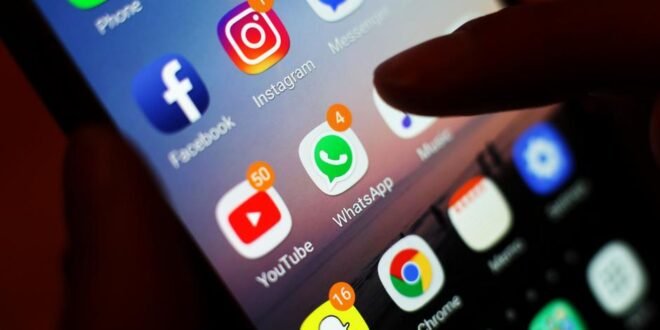Australia’s Social Media Ban for Under 16s: A New Approach to a Complex Issue
Australia is taking a bold step in addressing the growing mental health crisis among young people by implementing a national social media ban for children under 16. This measure, described as a world-first initiative, aims to tackle concerns about the negative impacts of social media on youth mental health. However, the question remains: Is a complete ban the most effective solution?
The decision to introduce the ban followed intense discussions around the dangers of social media, particularly highlighted in Jonathan Haidt’s book The Anxious Generation. The author argues that smartphone-based childhoods and heavy social media use are contributing to an epidemic of mental illness among teenagers. The Australian government passed the legislation in November 2024, with strong public support—77% of Australians backed the move, and 87% supported the plan to fine major platforms like TikTok, Facebook, Snapchat, Reddit, X, Instagram, and now YouTube if they failed to block underage users.
Despite this support, the implementation of the ban has raised concerns. Social media companies, including Elon Musk’s X, have expressed dissatisfaction with the policy, arguing that it may push young people to less regulated corners of the internet. A TikTok spokesperson warned that such a ban could lead to increased exposure to harmful content without the safety measures typically found on mainstream platforms.
The primary goal of the ban is to protect young people from cyberbullying, disinformation, and illegal content. However, some experts question whether a prohibition is the best way to address the complex issue of youth mental health. Marilyn Campbell, a professor at Queensland University of Technology, points out that while there is a strong correlation between rising technology use and worsening mental health, the causal relationship is not yet fully understood.
A 2023 study examining social media use across 72 countries found no evidence linking widespread social media use to significant psychological harm. Campbell notes that books like The Anxious Generation often highlight correlations rather than causation, but these ideas have gained traction in the media, influencing public opinion and policy decisions.
She also emphasizes that other factors, such as social inequity, climate anxiety, and gendered violence, play a critical role in youth mental health. Rather than focusing solely on social media, Campbell suggests that governments should invest in reforming mental health systems, increasing school counseling resources, and providing better support for students.
While the Australian government claims the ban is a necessary step to protect young people, Campbell acknowledges the potential benefits of social media. For example, young people with autism or those exploring their sexual and gender identity may find online communities more supportive than their local environments. She compares the ban to the Prohibition era in the U.S., where restrictions led to underground activity rather than real solutions.
Campbell also stresses the importance of preparing young people for a technologically saturated world. “We are not doing them any favors by saying, well, you can’t be in this world until you’re 16,” she said. Instead, she advocates for education that helps young people navigate the digital landscape safely.
Enforcing the Age Ban: Challenges and Concerns
The Australian ban will not take effect until December, but trials are already underway to address enforcement challenges. Platforms must develop alternative age verification methods, as they cannot require users to provide government-issued ID. However, a recent survey found that 80% of people are concerned about the accuracy of these technologies and potential data privacy issues.
Globally, support for similar bans is growing. In Germany, 77% of respondents in a 2024 poll supported an Australia-like social media ban, and 82% believed social media use is harmful to children and teenagers. Several U.S. states are also implementing stricter regulations, including parental consent requirements for users under 13. Sweden is considering banning smartphones in schools due to concerns over mental and physical health.
In 2024, U.S. Surgeon General Vivek Murthy suggested adding warning labels to social media platforms, similar to those on cigarettes and alcohol. While the report acknowledged the positive aspects of social media, such as community building, it also highlighted the risks associated with excessive use.
Marilyn Campbell believes that rather than banning social media, platforms should be designed to encourage safer interactions with young users. “Children need to be educated to live in the digital world,” she said. By focusing on education and safer design, society can better prepare young people for the challenges of the online world.
 Info Malang Raya Its All About World News
Info Malang Raya Its All About World News




